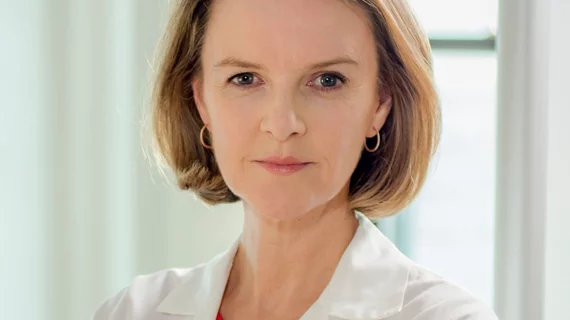Former ACR president McGinty appointed to new leadership position at Weill Cornell Medicine
Geraldine McGinty, MD, MBA, immediate-past President of the American College of Radiology, has been appointed to a new clinical leadership position at one of the nation’s foremost medical institutions.
McGinty is set to assume the role of senior associate dean for clinical affairs at Weill Cornell Medicine on Sept. 1. As the first woman to hold this position, she will work closely with Dean Augustine M.K. Choi, MD.
“I’m honored to serve as senior associate dean for clinical affairs and support Dean Choi’s vision for our clinical enterprise,” McGinty, who is also a radiologist at NewYork-Presbyterian/Weill Cornell Medical Center, said Monday. “I will be focusing on liaising with our clinical leadership and the other mission deans to support Weill Cornell Medicine’s commitment to care, discover and teach.”
McGinty is also the chief strategy officer and chief contracting officer of the Weill Cornell Medicine Physician Organization. She will succeed Peter N. Schlegel, MD, who stepped down last fall. Michael G. Stewart, MD, MPH, has served on an interim basis.
“Dr. McGinty, with her deep reservoir of knowledge in clinical strategy, is the perfect person to steward our clinical enterprise into the next phase of growth,” Choi said in the statement. “I look forward to working with her as we strive to continue our vital work providing the finest, most compassionate care to our patients.”

